 W
WConstantine Andreou was a painter and sculptor of Greek origin with a highly successful career that spanned six decades. Andreou has been praised by many as an eminent figure in international art of the 20th century.
 W
WSophia Antoniadis was a Greek Byzantinist. She was the first female professor at the Leiden University, the first female Humanities professor in the Netherlands and during her career was one of the few Greek women to hold a position at a European university.
 W
WIlektra Apostolou was a member of the Young Communist League of Greece, United Panhellenic Organization of Youth and the Communist Party of Greece, participating in the Greek Resistance. She was also a proponent of woman's rights. She was executed by the collaborationist State Special Security Directorate, which was a section of Hellenic Gendarmerie, because of her activity. Besides her action, she is known for the questioning she had with her interrogator: "Where are you from? I am from Greece. Where do you live? In Greece. What is your name? Greek. Who are your collaborators? They're all Greeks. What is your job? I work for the Greek people."
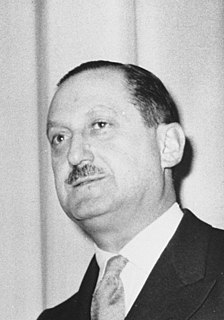 W
WEvangelos Averoff-Tositsas son of Anastasios, was a right-wing Greek politician and author of several books on political and historical topics.
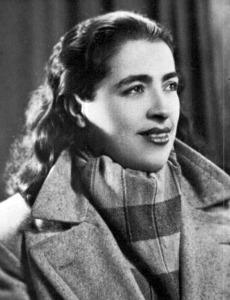 W
WSotiria Bellou was a Greek singer and performer of the rebetiko style of music. She was one of the most famous rebetisa of all, mentioned in many music guides, and a contributor to the 1984 British Documentary entitled Music of the Outsiders. On March 14, 2010, Alpha TV ranked Bellou the 22nd top-certified female artist in the nation's phonographic era.
 W
WArchbishop Chrysanthus of Athens, born Charilaos Filippidis, was the Archbishop of Athens and all Greece between 1938 and 1941.
Helias Doundoulakis was a Greek American civil engineer who patented the suspension system for the at-the-time largest radio telescope in the world. During WWII he served in the United States Army and the Office of Strategic Services (OSS) as a spy.
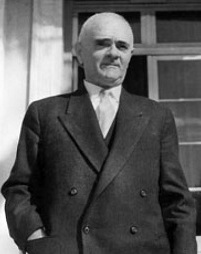 W
WKonstantinos Dovas was a Greek general and interim Prime Minister.
 W
WAlberto Israel Errera was a Greek-Jewish officer and a member of the anti-Nazi resistance. He was a member of the Sonderkommando in Auschwitz-Birkenau from May to August 1944.
 W
WAngelos Evert was a Greek police officer, most notable for serving as head of the Athens branch of the Cities Police during the Axis Occupation of Greece during World War II.
 W
WGeorgios Grivas, also known by his nickname Digenis, was a Greek Cypriot general in the Hellenic Army and the leader of the EOKA organisation.
 W
WFalk Harnack was a German director and screenwriter. During Germany's Nazi era, he was also active with the German Resistance and toward the end of World War II, the partisans in Greece. Harnack was from a family of scholars, artists and scientists, several of whom were active in the anti-Nazi Resistance and paid with their lives.
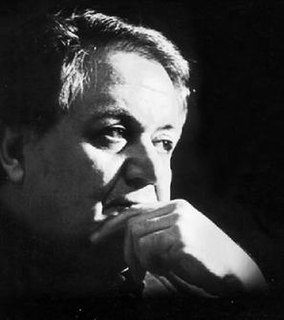 W
WManos Hatzidakis was a Greek composer and theorist of Greek music, widely considered to be one of the greatest greek composers and one of the most globally recognised. His legacy and contribution are widespread among the works of contemporary Greek music, through the second half of the 20th and into the 21st century. He was also one of the main proponents of the "Éntekhno" form of music . In 1960, he received an Academy Award for Best Original Song for his song Never on Sunday from the film of the same name.
 W
WPaul J. Ioannidis was a German-born Greek pilot and Resistance fighter.
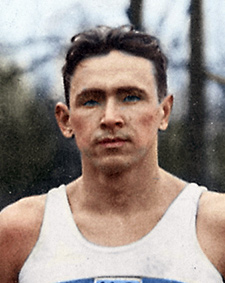 W
WJerzy Iwanow-Szajnowicz was a Greek-Polish athlete who fought as a saboteur in the Greek Resistance during World War II and was executed by the Germans.
 W
WPeriklis Kallidopoulos was a Greek Army officer who reached the rank of major general, before entering politics. During World War II, he was active in the Greek Resistance, and is honoured as a "Righteous Among the Nations" by Yad Vashem.
 W
WPantelis Karasevdas was a Greek shooter. He was a member of Panachaikos Gymnastikos Syllogos, that merged in 1923 with Gymnastiki Etaireia Patron to become Panachaiki Gymnastiki Enosi. Karasevdas competed at the 1896 Summer Olympics in Athens, where he won a gold medal for the host country.
 W
WGeorgios Kartalis was a Greek politician.
 W
WEmmanuel "Manos" Katrakis was a Greek actor of theater and film.
 W
WIro Konstantopoulou was a member of the Greek resistance during World War II. She worked with the resistance in Greece to oppose the Axis occupation of the country for three years before being captured, tortured, and executed in September 1944.
 W
WRoussos A. Koundouros was a Greek lawyer and politician who was executed by the Germans for his involvement in the Cretan Resistance.
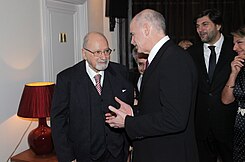 W
WLeonidas Kyrkos was a Greek leftist politician and member of the Hellenic Parliament and the European Parliament.
 W
WGrigoris Lambrakis was a Greek politician, physician, track and field athlete, and member of the faculty of the School of Medicine at the University of Athens. A member of the Greek resistance to Axis rule during World War II, he later became a prominent anti-war activist. His assassination by right-wing zealots provoked mass protests and led to a political crisis.
 W
WSir Patrick Michael Leigh Fermor, also known as Paddy Fermor, was a British author, scholar, soldier and polyglot who played a prominent role behind the lines in the Cretan resistance during the Second World War. He was widely regarded as Britain's greatest living travel writer during his lifetime, based on books such as A Time of Gifts (1977). A BBC journalist once described him as "a cross between Indiana Jones, James Bond and Graham Greene".
 W
WSpyridon Markezinis or Markesinis was a Greek politician, longtime member of the Hellenic Parliament, and briefly the Prime Minister of Greece during the aborted attempt at democratization of the Greek military regime in 1973.
 W
WKonstantinos Mitsotakis was a Greek politician who was Prime Minister of Greece from 1990 to 1993. He graduated in law and economics from the University of Athens. His son, Kyriakos Mitsotakis, was elected as the Prime Minister of Greece following the 2019 Greek legislative election.
 W
WIvan William Stanley Moss MC, commonly known as W. Stanley Moss or Billy Moss, was a British army officer in World War II, and later a successful writer, broadcaster, journalist and traveller. He served with the Coldstream Guards and the Special Operations Executive (SOE) and is best known for the Kidnap of General Kreipe. He was a best-selling author in the 1950s, based both on his novels and books about his wartime service. His SOE years are featured in Ill Met by Moonlight: The Abduction of General Kreipe, and A War of Shadows. Moss travelled around the world and went to Antarctica to meet the Commonwealth Trans-Antarctic Expedition.
 W
WBrigadier Edmund Charles Wolf Myers, more commonly known as Eddie, was a British Army officer who fought in World War II. Myers was an officer in the Royal Engineers.
 W
WAlexandros Papagos was a Greek army officer who led the Hellenic Army in World War II and the later stages of the subsequent Greek Civil War. The only Greek career officer to rise to the rank of Field Marshal, Papagos became the first Chief of the Hellenic National Defence General Staff from 1950 until his resignation the following year. He then entered politics, founding the nationalist Greek Rally party and becoming the country's Prime Minister after his victory in the 1952 elections. His premiership was shaped by the Cold War and the aftermath of the Greek Civil War, and was defined by several key events, including Greece becoming a member of NATO; U.S. military bases being allowed on Greek territory and the formation of a powerful and vehemently anti-communist security apparatus. Papagos' tenure also saw the start of the Greek economic miracle, and rising tensions with Britain and Turkey over the Cyprus issue.
 W
WGeorgios Papandreou was a Greek politician, the founder of the Papandreou political dynasty. He served three terms as prime minister of Greece. He was also deputy prime minister from 1950–1952, in the governments of Nikolaos Plastiras and Sofoklis Venizelos and served numerous times as a cabinet minister, starting in 1923, in a political career that spanned more than five decades.
 W
WMichalis Papazoglou was a Greek athlete from Constantinople. He started with track and field sports but when he came to Athens in the early 1910s, he joined the football club PPO. He was the man who had the idea of adopting the trefoil as the official emblem of Panathinaikos. Beside football, he was also an athlete of discus throw and javelin throw.
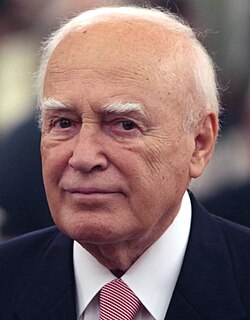 W
WKarolos Papoulias is a Greek politician who served as President of Greece from 2005 to 2015. A member of the Panhellenic Socialist Movement (PASOK), he previously was Minister of Foreign Affairs from 1985 to 1989 and again from 1993 until 1996.
 W
WGeorgios Petrakis, better known as Petrakogiorgis, was a Greek businessman, partisan, and politician. He was a leading figure in the Cretan resistance of the years 1941 – 1944 against the Axis occupation forces, well respected for his patriotism, courage, honesty, perspicacity and selflessness.
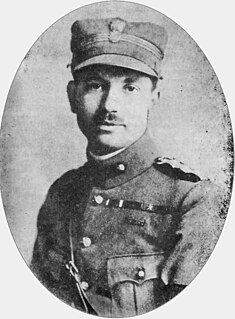 W
WDimitrios Psarros was a Greek army officer, founder and leader of the resistance group National and Social Liberation (EKKA), the third-most significant organization of the Greek Resistance movement after the National Liberation Front (EAM) and the National Republican Greek League (EDES).
 W
WGeorge Psychoundakis BEM was a member of the Greek Resistance on Crete during the Second World War and after the war an author. Following the German invasion, between 1941 and 1945, he served as a despatch runner for the Special Operations Executive (SOE) operations on Crete, as part of the Cretan resistance. During the postwar years he was at first mistakenly imprisoned as a deserter. While in prison he wrote his wartime memoirs, which were published as The Cretan Runner. Later he translated key classical Greek texts into the Cretan dialect.
 W
WDespina Achladiotou, known as the Lady of Ro, was a Greek patriot born on the island of Kastellórizo in 1890.
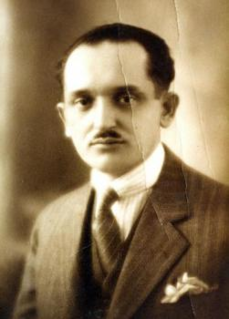 W
WVasileios Sachinis, was a Greek leader of the Northern Epirote Liberation Front (MAVI) (1942–1943), an organization related to the National Republican Greek League of Napoleon Zervas.
 W
WSeraphim born Vissarion Tikas was Archbishop of Athens and All Greece from 1974 to 1998.
 W
WGeorgios Sifakis was a Greek priest, teacher, a member of the resistance during the Second World War, and one of the 62 Martyrs of Crete.
 W
WDanai Stratigopoulou was a Greek singer, writer, and university academic. She acquired recognition in the literary world for translating the works of the Chilean nobel laureate Pablo Neruda into the Greek language.
 W
WChristopher Montague "Monty" Woodhouse, 5th Baron Terrington, was a British Conservative politician who served as Member of Parliament (MP) for Oxford from 1959 to 1966 and again from 1970 to 1974. He was also a visiting Fellow at Nuffield College, Oxford, from 1956 to 1964.
 W
WMichail "Mikis" Theodorakis was a Greek composer and lyricist credited with over 1,000 works.
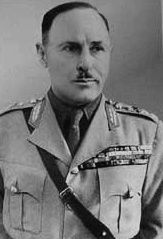 W
WKonstantinos Ventiris was a Hellenic Army officer who rose to the rank of lieutenant general. He served twice as Chief of the Hellenic Army General Staff and was one of the senior government commanders during the Greek Civil War. He is also one of the few recipients the country's highest wartime decoration, the Commander's Cross of the Cross of Valour.
 W
WZisis Verros was a notable Greek chieftain of the Macedonian Struggle.